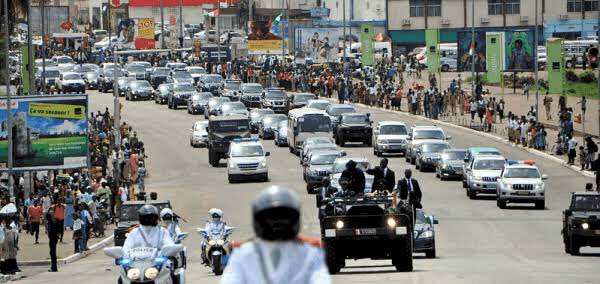As Africa continues its journey towards greater economic and social progress, the role of political systems has become a crucial point of discussion. One central question is whether democracy is the best path forward for the continent's development.
On the surface, the principles of democracy - government by the people, political freedoms, and equal rights - seem inherently aligned with the aspirations of many Africans. However, the reality on the ground paints a more complex picture. In some nations, the sustainability of democratic institutions remains fragile, marred by issues like government corruption, lack of transparent elections, and the concentration of power among elites.
"The problem is not a lack of democracy, but the quality of democracy," argues Professor Sadig Rasheed, a renowned African political scientist. "Far too often, we see democracies that serve the interests of the few rather than the many. True development requires a fundamental shift in how power and resources are distributed."
Indeed, some analysts point to the seeming paradox where countries with authoritarian leanings, such as Rwanda and Ethiopia, have experienced relatively robust economic growth in recent decades. This has led some to question whether strong, centralized leadership may be a more effective pathway to rapid industrialization and poverty reduction in certain African contexts.
However, critics argue that such state-led development models often come at the cost of individual freedoms, civil liberties, and the organic expression of grassroots voices. They contend that sustainable progress must be anchored in the genuine empowerment of citizens, with democracy serving as the foundation.
"The deprived, vulnerable and oppressed continue to defend the oppressors, and wastage remains the order of the day," laments Fatima Deen, a Kenyan civic activist. "This is a clear indication that the system is failing. True development requires a radical shift in power dynamics and the meaningful participation of all segments of society."
One of the starkest disconnects between the ideals of democracy and the realities on the ground in many African nations is the stark contrast between the lavish lifestyles of political elites and the dire living conditions of the masses. It is deeply troubling to see presidents and ministers travelling on bad roads in convoys of expensive SUVs, while passing by impoverished schools and healthcare facilities that lack even the most basic resources.
These ostentatious displays of wealth and power by the ruling class stand in stark contradiction to the principles of equality and shared prosperity that are central to the democratic philosophy. When the political elite constructs residential apartments that the average citizen could never afford, they prefer to keep them empty than to reduce the prices. It becomes clear that the system is not serving the interests of the people, but rather entrenching the privileges of the few.
Sadly, this culture of excess and indifference extends even to the most fundamental needs of the populace. It is unconscionable that citizens are forced to endure sleeping on bare floors in ill-equipped clinics, while their leaders seem oblivious to their plight. The blatant disregard for the well-being of the common people casts serious doubt on whether these so-called democracies are truly fulfilling their mandate.
Furthermore, the reliance on excessive borrowing to finance such lavish spending only compounds the problem, saddling the nation with crippling debt that ultimately stifles development. It is difficult to reconcile this reckless approach to governance with the democratic ideal of responsible, accountable leadership that works for the greater good.
Ultimately, this disconnect between the trappings of democracy and the lived realities of the people has led to a deep sense of disillusionment and even resistance among the most marginalized segments of society. They have grown weary of defending a system that seems to benefit only the privileged few, rather than uplifting the collective interests of the nation. True democratic progress will remain elusive until these fundamental imbalances of power and resource distribution are addressed.
Ultimately, the debate over democracy and development in Africa remains hotly contested, with valid arguments on both sides. What is clear, however, is that the path forward must be guided by a deep understanding of local contexts, a commitment to inclusive governance, and a relentless pursuit of social and economic justice. Only then can the promise of a prosperous and equitable Africa be realized.
Desmond John Beddy
Sidebar
Magazine menu

 Teline V
Best News Template For Joomla
Teline V
Best News Template For Joomla
19
Thu, Sep
15
New Articles










